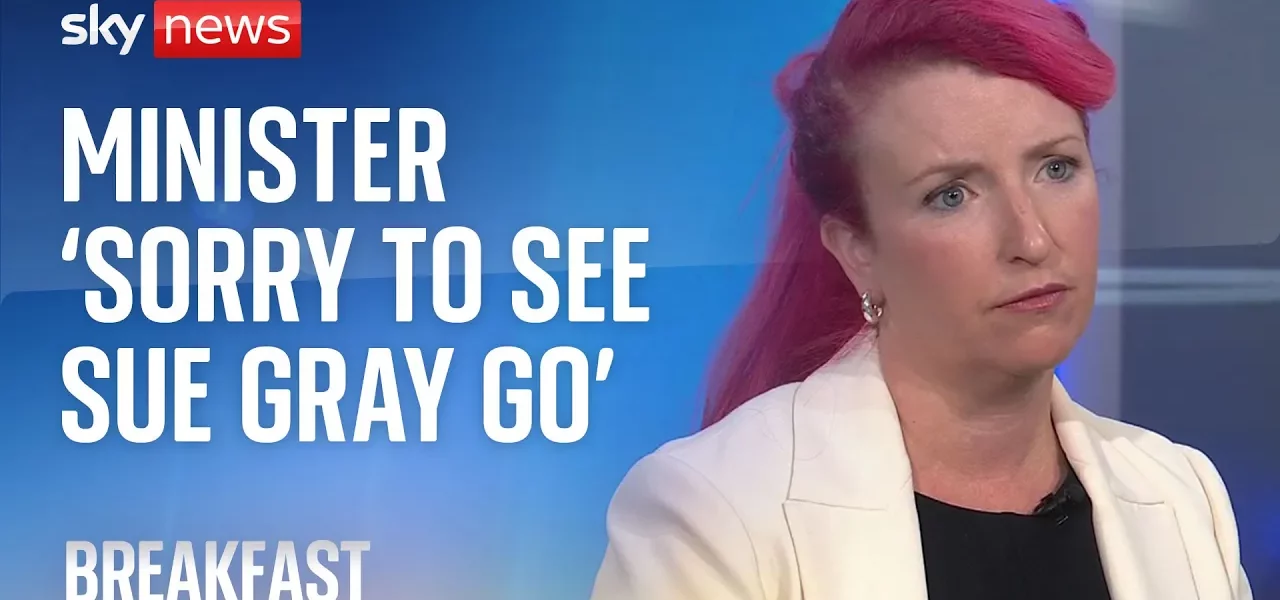Will You Remember Sue Gray’s Tenure?

In this article, we explore the significant contributions of Sue Gray during her time as a public servant, her recent resignation, and her new role leading the Council of Regions and Nations. We delve into her impact on the political landscape and the ongoing challenges faced by the government.
Introduction
Sue Gray has made notable strides as a public servant in the UK, particularly during her tenure in opposition. Her efforts in preparing the party’s manifesto and collaborating with local mayors and regions have been invaluable. Recently, she has taken on the role of Chair of the Council of Regions and Nations, a position that underscores the importance of regional governance amidst ongoing discussions on devolution. In this article, we will analyze her career, the implications of her resignation, and what her future roles mean for the political landscape.
Significant Contributions of Sue Gray
Role in Opposition
During her time in opposition, Sue Gray played a crucial part in shaping the party’s manifesto. Her dedication to understanding the needs of English regions and working closely with mayors helped bridge the gap between local and national governance.
- Worked on regional policies
- Fostered relationships with local leaders
- Emphasized the importance of regional governance
Chair of the Council of Regions and Nations
Taking on the role of Chair of the Council of Regions and Nations, Gray is poised to continue her impactful work in regional governance. This new position is pivotal as it coincides with crucial legislation on English devolution, which aims to reshape the governance structure of the UK.
- Advocating for regional interests
- Collaborating with local governments
- Driving forward devolution initiatives
The Circumstances of Her Resignation
Speculation and Decision
Sue Gray’s resignation as Chief of Staff was surrounded by intense speculation regarding her role in the government. The decision was ultimately hers, made in light of the pressures and challenges faced due to public scrutiny. Understanding her perspective sheds light on the complexities of leadership and governance.
Reactions to Her Resignation
The reaction to Gray’s departure has been mixed, with many expressing disappointment at her stepping down from such a crucial position. However, her commitment to continue serving in a significant role reflects her dedication to public service.
Challenges Facing the Government
Public Perception
Recent polls indicate a growing concern among the public regarding the integrity of the current labor government. Over half of the respondents perceive the government as ‘sleazy’, a sentiment that calls for immediate attention and reassurance from government officials.
Government Initiatives
Despite public concerns, the government has made significant strides in various sectors, including transportation and environmental initiatives. For instance:
- Investment in zero-emission buses
- Plans for public ownership of railways
- Legislation aimed at reshaping English devolution
Conclusion
In summary, Sue Gray’s tenure has been characterized by significant contributions to public service, a challenging resignation, and a new opportunity to influence regional governance. As the government navigates through public skepticism, it is essential for leaders to focus on transparency and accountability. The ongoing work in English devolution and other initiatives will be critical in restoring public trust. We encourage readers to stay informed on these developments as they unfold.
“`




